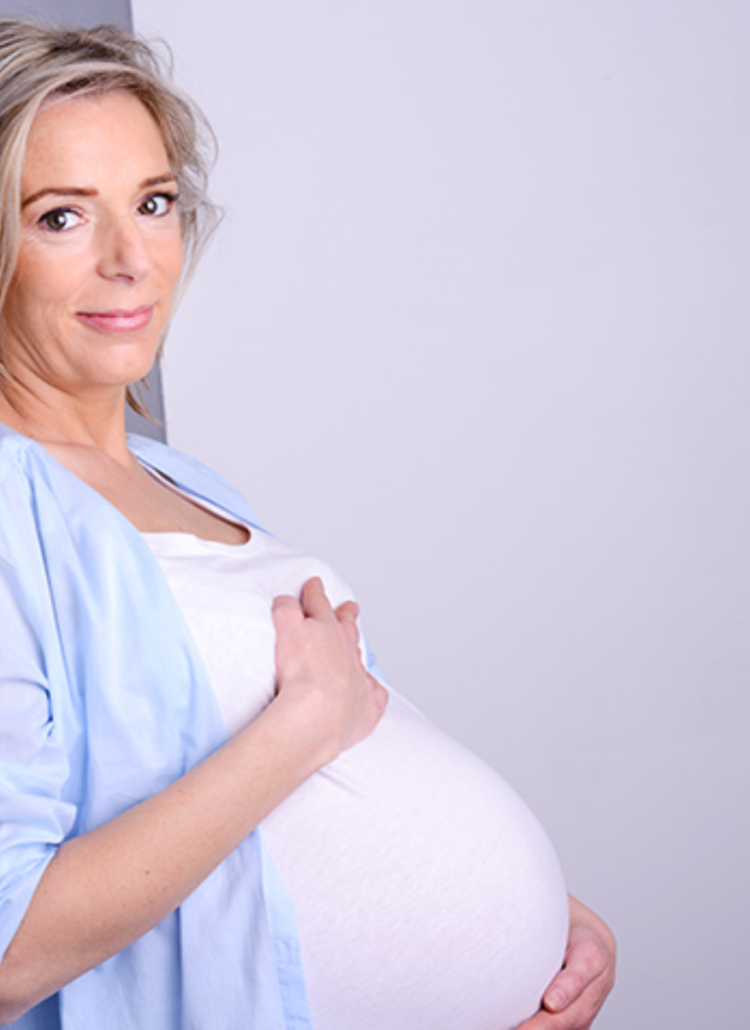mRNA COVID-19 Vaccines While Pregnant and Breastfeeding
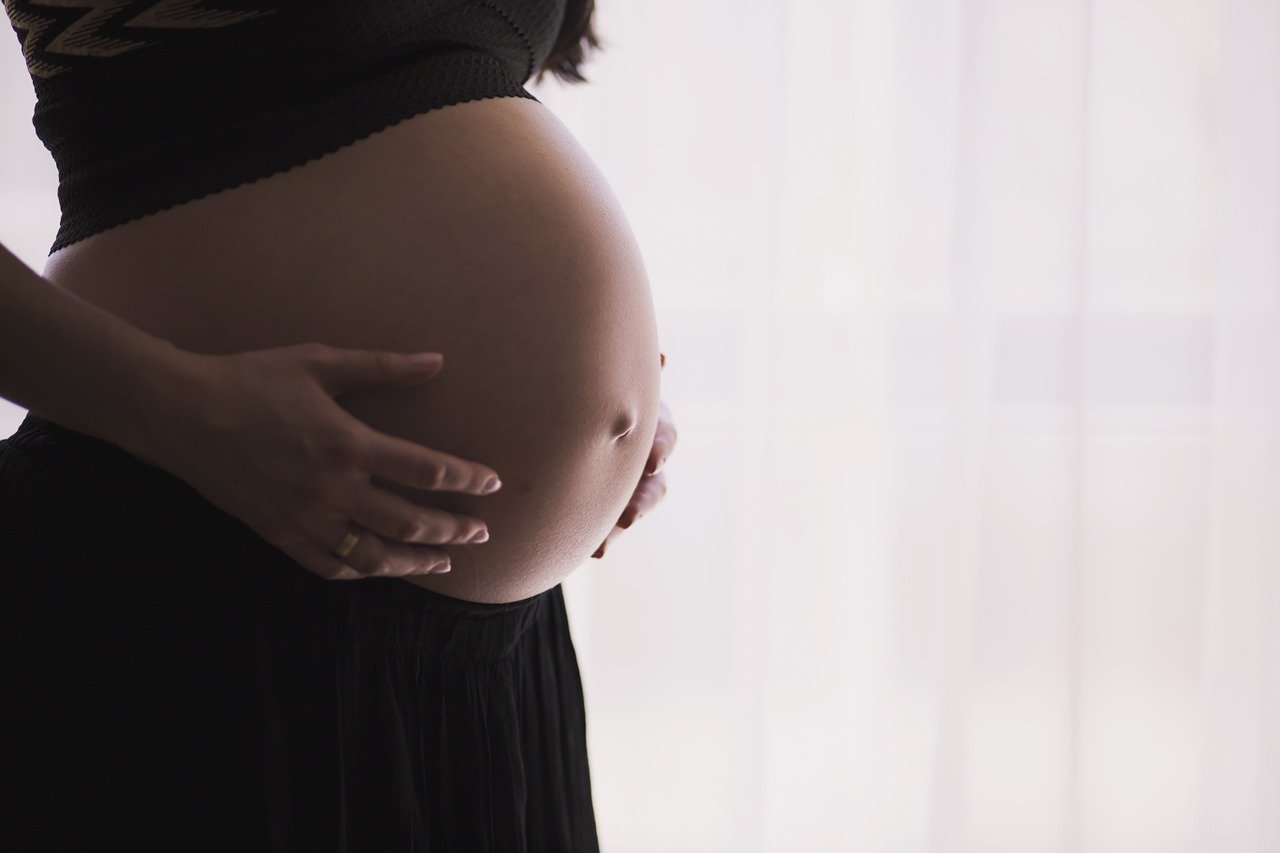
After my post about the mRNA COVID-19 vaccines (read it here), I received a few requests for information on COVID-19 vaccine use during pregnancy and breastfeeding.
Ask and you shall receive!
All the information presented here pertains only to the mRNA COVID-19 vaccines during pregnancy and breastfeeding. They are the Pfizer and Moderna vaccines.
***DISCLAIMER***
Firstly, I want to stress that the information here is NOT to be a substitute for professional medical advice. I am an academic research scientist with training in the area of drug/environmental exposures during pregnancy and breastfeeding. And so, I can use my expertise in this area to explain to you the information, based on the clinical studies available, to the best of my ability. I am NOT a medical doctor and, more importantly, I am not YOUR personal health care provider. Please discuss this information with your obstetrician or family doctor before making any decisions.
Secondly, this information is up-to-date to the best of my knowledge as of Thursday May 13th, 2021. As you know with anything COVID-19 related, things could change rapidly as we get more information from new studies. This is the information from published clinical studies available now.
Lastly and importantly, I strongly recommend consulting with your primary health care provider before making any decisions.
With all that said, here are the answers to some of your questions.
Is the risk of complications higher if I got infected with coronavirus while pregnant or breastfeeding?
Pregnant Women
Short answer: Highly possible.
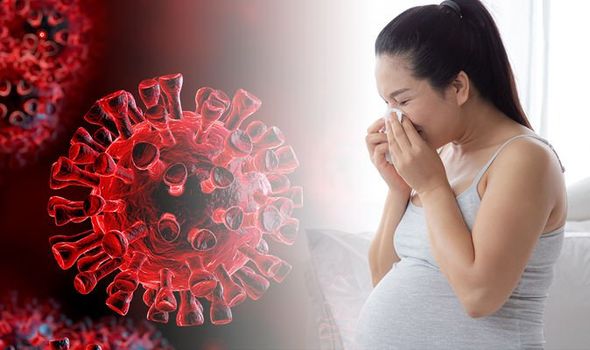
Data have indicated that pregnant women may have a greater chance of experiencing severe illness when infected with coronavirus. This is in comparison to non-pregnant women. Even if you are healthy, the pregnancy itself makes you more susceptible to some of the complications of COVID-19.
The available data suggests that pregnant women infected with the coronavirus are:
- Increase risk of admission to the intensive care unit.
- More likely to require mechanical ventilation and ventilator support.
- Higher risk of severe illness in those who are 35 years or older. Or diagnosed with asthma, obesity, or pre-existing diabetes.
- Increased risk of preterm birth.
Any severe illness in pregnancy, whether it is COVID-19 or not, increases the risk to the outcome of the pregnancy. Therefore, it is imperative to remain as healthy as possible while pregnant.
Breastfeeding Women
Based on the limited data available, if breastfeeding women get infected with coronavirus, they do not appear to be at higher risk of developing severe illness compared to non-pregnant women.
Can I get the mRNA COVID-19 vaccine if I am pregnant and breastfeeding?
Yes. Health Canada and the Centers for Disease Control and Prevention (CDC) left the door open for pregnant and breastfeeding women to decide whether to get the vaccine or not when it becomes available to them. Along with that, you should discuss the risks and benefits your health care provider or obstetrician.
So, essentially, the answer is yes. If you are pregnant or breastfeeding, the decision is ultimately yours to make whether you get the vaccine or not.
Is the mRNA COVID-19 vaccine safe for pregnant and breastfeeding women?
Pregnant Women
In my previous post all about the mRNA COVID-19 vaccines (read it here), I explained that the COVID-19 mRNA vaccine does not contain a live virus. It only contains the genetic material that instructs your cells to make a small portion of the virus. Think of it like a word document (analogous to the genetic code – the mRNA) being sent to a printer (your cell’s machinery) to make a copy (the spike protein) of it.
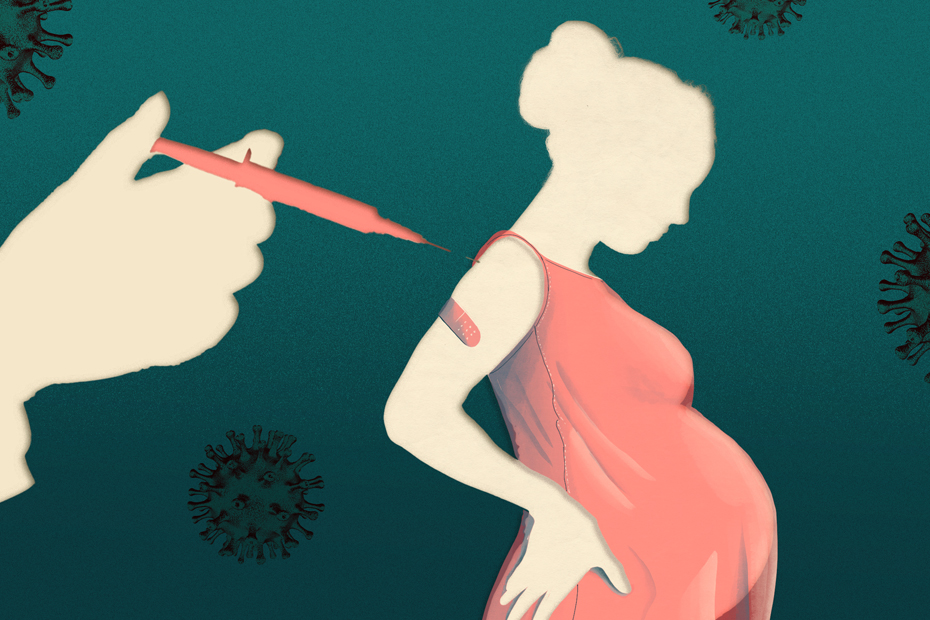
The mRNA COVID-19 vaccine only contains a piece of genetic code. Thus, data indicate that the vaccines, theoretically, are very unlikely to pose any increased safety risks to pregnant women.
Both the Pfizer and Moderna clinical trials deliberately did not include pregnant or breastfeeding women. However, some study participants did become pregnant while on the trials. And the CDC is currently tracking more than 30, 000 people who became pregnant when they received the vaccine. Of those, nearly 1,800 pregnant women kept detailed descriptions of any symptoms. As well as, any adverse pregnancy-related side effects they may have experienced after being vaccinated.
So far, the reports indicate that pregnant women seem to experience the same side effects as non-pregnant women. And most importantly, the vaccines do not appear to increase the risks of miscarriages. Nor do they increase risk of stillbirths, or preterm births compared to non-vaccinated pregnancies.
Lastly, keep in mind that the mRNA COVID-19 vaccines can cause some side effects in everyone. Side effects can include pain in the arm at the injection site, mild fever, muscle pain, chills and headaches. Symptoms typically disappear after one or two days. But if symptoms persist beyond two days, call your primary health care provider immediately.
The Fetus
Based on the preliminary toxicity studies currently available, the results did not indicate any negative side effects on fetal development.
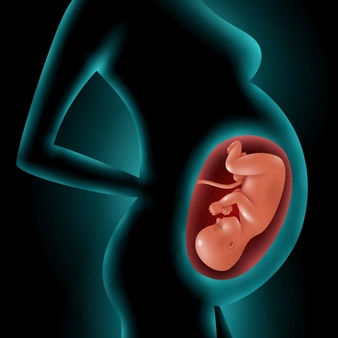
Also, what we do know right now is that pregnant women who were vaccinated while pregnant showed some transfer of mom’s antibodies to the baby. Along with this, we can use what we know about other vaccines, like the flu shot. This vaccine is recommended during pregnancy because antibodies from mom can cross the placenta to offer protection to the fetus. Now, with the mRNA vaccines, it is unclear the level of protection mom’s antibodies provide, but it may potentially add just enough benefit to the baby to prevent any severe outcomes.
Again, more research is needed before any certainty can be made about these mRNA COVID-19 vaccines on the fetus specifically.
In line with that, Pfizer is currently conducting a large scale study, enrolling 4,000 pregnant women. The study is looking at the immunity that babies may potentially receive from mom when vaccination happens during pregnancy. So, we will definitely know more about how these mRNA COVID-19 vaccines might impact the baby when received during pregnancy.
For now, however, it is important to discuss the risks and benefits of getting the mRNA COVID-19 vaccines while pregnant with your primary health care provider before making any decisions.
Breastfeeding Women and Their Breastfed Baby
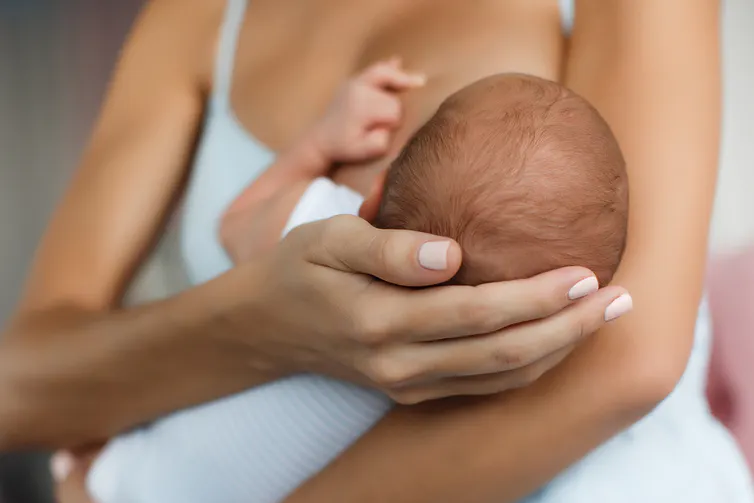
For breastfeeding mothers, there is no evidence of any increase risk of negative outcomes in comparison to non-breastfeeding women. But we have limited data on the effects of the vaccine on milk production.
However, based on other vaccine data, such as the flu vaccine, and the data we do have on how the mRNA vaccines work, the mRNA COVID-19 vaccines do not appear to pose a risk for the breastfed baby.
Additionally, recent published studies have shown antibodies in their expressed breastmilk. This suggests that mom’s antibodies against coronavirus may be transferring to their breastfed baby.
What is uncertain is the amount of antibodies being transferred. And how well these antibodies are being absorbed by the baby. Nevertheless, if you are breastfeeding, it is possible that this antibody transfer could provide your baby with some level of protection against the coronavirus. But more research is needed.
If you do decide to get the mRNA COVID-19 vaccines, the available data suggests that there is no need to stop breastfeeding. But it is still important to discuss all options with your primary health care provider before making a decision.
Can mRNA COVID-19 vaccines causes infertility & miscarriages?
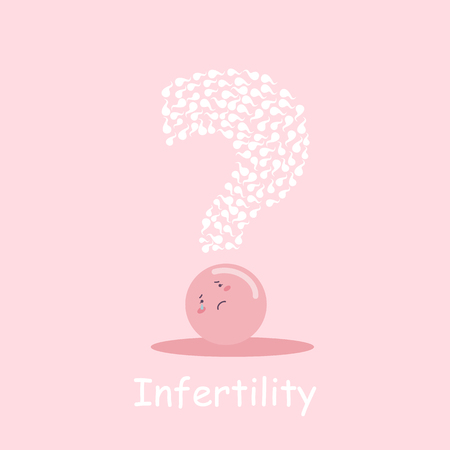
This claim started because the spike protein’s genetic code shares a similarity with another protein, called syncytin-1, which plays a role in the placenta. Some people have claimed that these vaccines may cause the immune system to mistakenly attack the syncytin-1 protein instead of the spike protein. Thus, causing the placenta to reject this syncytin-1 protein & leave women infertile or miscarry.
The problem with this claim is 2-fold:
(1) Yes, the genetic code for the spike protein does share a tiny sequence similarity with syncytin-1. But not enough to be mistaken for each other. It would be like 2 people having phone numbers containing the number 8. Just because both share a digit, it would still be impossible to dial one number and reach the other person on the other number.
(2) This past year, thousands of women have been infected with the coronavirus globally. And yet, no reports of COVID-19 increasing the risk of infertility and/or miscarriages. The question we all should be asking is: if natural infection with the coronavirus hasn’t shown to cause infertility or miscarriages, why and/or how could a vaccine that only contains a small piece of a genetic code affect fertility or cause miscarriages?
Can people who are vaccinated can “shed the shot” & harm people around them?
First, a person CANNOT “shed” the vaccine. These mRNA COVID-19 vaccines do NOT contain the harmful coronavirus itself. They are simply pieces of genetic code, mRNA, that instructs your cells to produce spike proteins. Once your cells have read the genetic code, it gets broken-down and destroyed, leaving no trace of the mRNA.
This ‘shed the shot’ idea is based on the fact that actual viruses CAN shed. Meaning, if you are infected with coronavirus, or other viruses, you may unknowingly shed viral particles while you breathe, talk, exhale, eat, exercise, etc. and infect others around you. This viral shedding typically lasts a week from when you got infected. And you may even be asymptomatic when shedding happens. But this ‘shedding’ happens only when infected with live viruses.
So, the answer is NO, you cannot “shed the shot” after vaccination and harm others around you.
The Bottom Line
Getting the vaccines is an important decision for pregnant women and breastfeeding moms. A decision that should be made with your obstetrician who can thoroughly review your personal medical history.
With that said, the current available data suggest that the mRNA COVID-19 vaccines in pregnancy and breastfeeding may have potential benefits for both mom and baby.
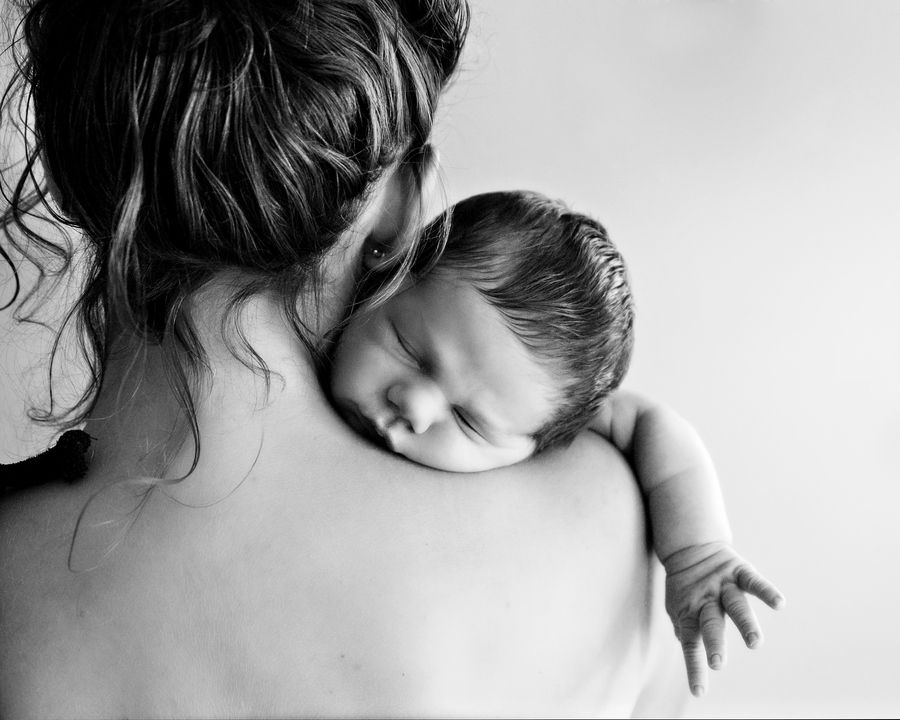
Image may be subject to copyright.
- No increased risk for negative pregnancy outcomes linked to the COVID-19 vaccines.
- Antibodies may cross the placenta potentially providing protection to the fetus.
- No increased risk to breastfeeding moms, as the COVID-19 vaccine is not a live virus.
- Possible transfer of antibodies to breastfed babies potentially providing some level of protection.
With the limited data currently available, it does raise some unanswered questions. For that reason, my goal is to provide up-to-date science about these mRNA COVID-19 vaccines. Also, whether it is safe to use in pregnancy and breastfeeding.
Armed with this information, a reasonable decision is choosing whichever one is best for YOU. If after weighing the risks and benefit of getting vaccinated while pregnant and knowing that we have limited data, some of which is based on biological plausibility and other vaccines, it is completely reasonable to wait for more data or after pregnancy to make a decision.
As always, be sure to talk to your obstetrician about care considerations that are specific to you.

